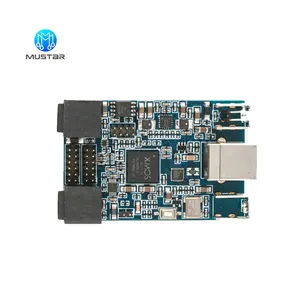Understanding 20A BMS Technology
Battery Management Systems (BMS) are crucial for managing the operational parameters of battery packs, ensuring safety, and extending their lifespan. The 20a BMS category specifically refers to BMS units designed to handle up to 20 amperes of continuous current, suitable for various applications.
Types and Configurations
The versatility of 20a BMS units is evident in their various configurations, such as bms 3s 20a, bms 4s 20a, and bms 10s 36v 20a. These configurations indicate the number of cells they can manage, with 's' denoting series connections of battery cells. For instance, a 3s 20a bms is tailored for three cells in series, making it ideal for 12v systems.
Applications Across Industries
The application of 20a BMS technology spans across electronic devices to communication systems. A bms 12v 20a is commonly integrated into portable power packs, while a bms 13s 48v 20a might be found in more robust energy storage solutions. The adaptability of these systems allows for their use in a range of environments and equipment.
Features and Materials
A 20a BMS typically includes features such as overcharge and discharge protection, temperature control, and cell balancing. Materials used in BMS construction, like the hxyp 4s 6040 model, are chosen for durability and conductivity, ensuring that the BMS not only protects the battery pack but also contributes to its efficient operation.
Advantages of Using a 20A BMS
Incorporating a 20a BMS into a battery system offers several advantages. It enhances the safety of the battery pack, prolongs its life, and ensures optimal performance. For example, a bms 2s 20a safeguards against potential risks in smaller battery applications, while a bms 20 amp system can manage larger, more demanding energy requirements.
Selecting the Right 20A BMS
Choosing the correct 20a BMS involves considering the specific needs of your battery pack and application. Whether it's a bms 1s 20a for a single-cell pack or a more complex hxyp 4s bm20 for a four-cell pack, ensuring compatibility with your system is paramount for optimal performance and longevity.











































 浙公网安备 33010002000092号
浙公网安备 33010002000092号 浙B2-20120091-4
浙B2-20120091-4